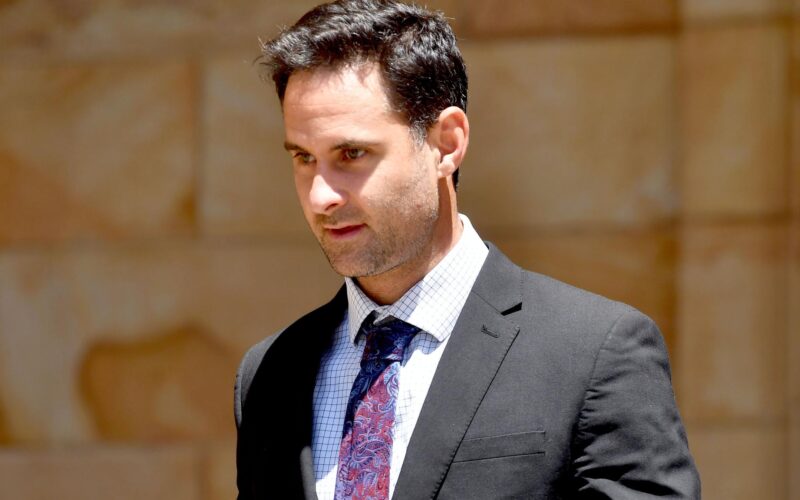Rising criminal lawyer Andrew Graham has pleaded guilty to supplying cocaine, but will contest a charge of attempting to pervert the course of justice.
Graham, 36, will be arraigned in the District Court on Friday following negotiations with prosecutors and will face trial by judge alone later this year.
In Adelaide Magistrates Court last week, Graham pleaded guilty to supplying or administering a controlled drug, but pleaded not guilty to attempting to obstruct or pervert the course of justice.
Police allege Graham, of Vale Park, supplied cocaine to others and consumed it himself while under surveillance by a security guard in an Adelaide nightclub on August 18 last year. When confronted, Graham allegedly attempted to persuade the guard not to take any action over the incident.
Graham was originally facing four charges over the incident, but two of them have been dropped by police. They were remaining on a licensed premises while in possession of a controlled drug not contained in packaging with a prescribed label, and consuming a controlled drug other than cannabis.
The remaining two are major indictable charges that carry significant jail terms if convicted. They are supplying a controlled drug other than cannabis to another person, and offering or agreeing to give benefit “as a reward or inducement” to a person who “was or may be required to be a witness in judicial proceedings, to withhold evidence or give false evidence at the proceedings’’.
In January Graham represented Rebels bikie Bradley Daniele who pleaded guilty to serious assault charges after brutally bashing a child sex offender in the cells of the city watch-house.
While Graham will face trial in the District Court, his alleged conduct is also likely to be investigated by Legal Profession Conduct Commissioner Greg May.
In February, Law Society of SA president Tim White said the society was bound to report to Mr May “any matter that comes to its attention where there is reasonable suspicion that a practitioner’s actions amounted to unsatisfactory professional conduct or professional misconduct’’.
Under state law, a legal practitioner convicted of an indictable offence would trigger a “show-cause event”.
“(This is) where a practitioner would have to make an application to the Supreme Court to keep their practising certificate, and the court has the power to modify or suspend the applicant’s practising certificate, or strike the applicant off the roll of practitioners,’’ Mr White said.
“The Supreme Court can also order interim measures, such as a suspension or restriction of a practising certificate, if a practitioner has been charged with a criminal offence.”
You can discuss this material in our Facebook group!
Source: The Western Australian
